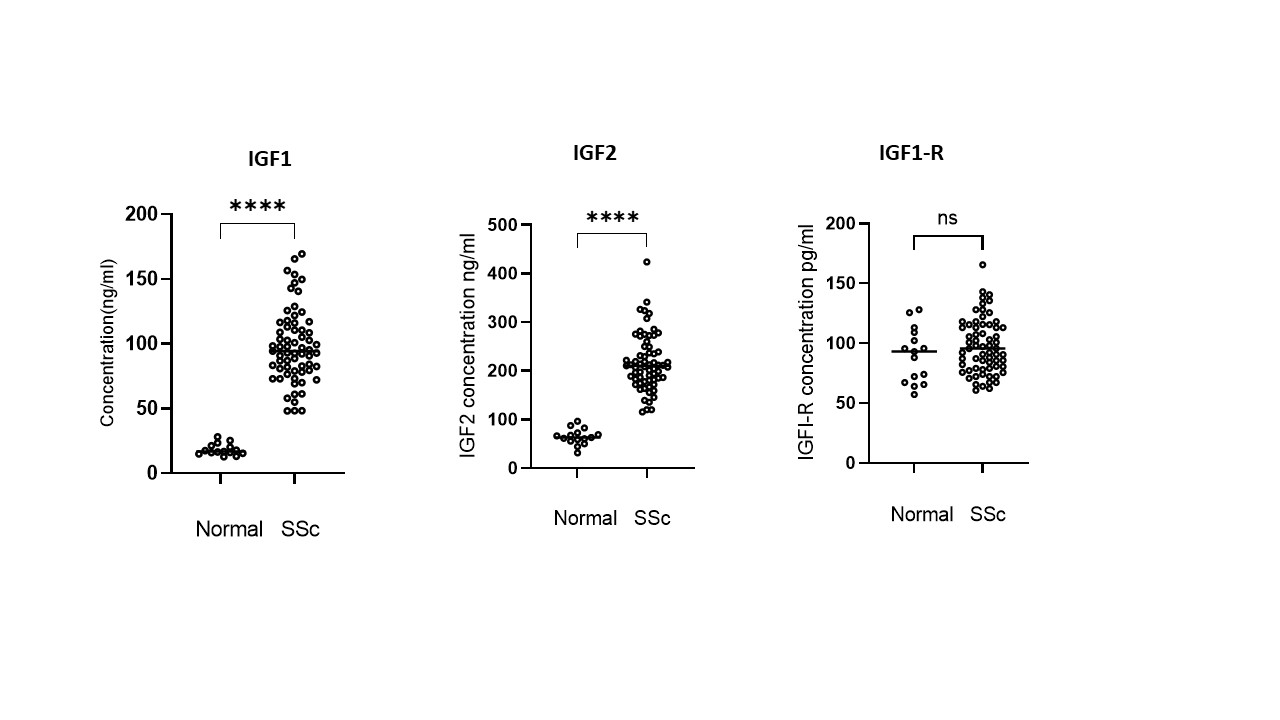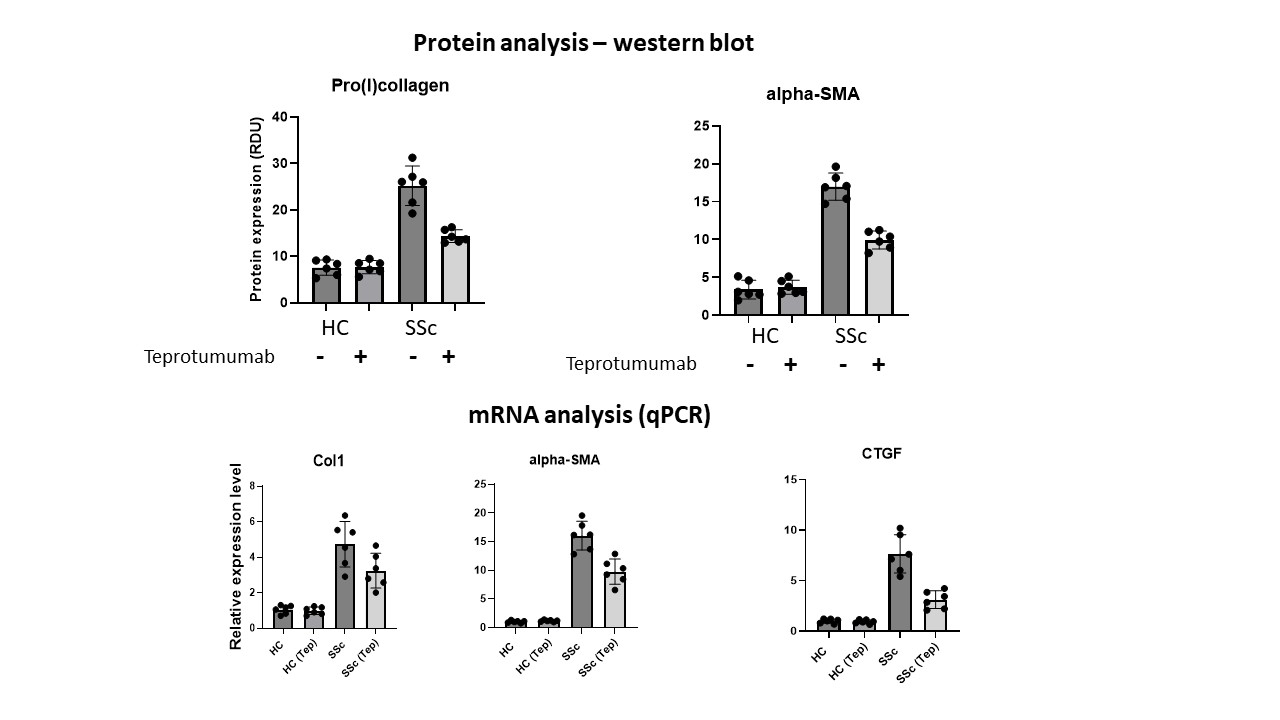Session Information
Date: Monday, November 13, 2023
Title: (0934–0964) Systemic Sclerosis & Related Disorders – Basic Science Poster
Session Type: Poster Session B
Session Time: 9:00AM-11:00AM
Background/Purpose: Previous studies have shown that insulin like growth factor (IGF) pathways may promote extracellular matrix deposition and be upregulated in systemic sclerosis (SSc). Teprotumumab, a monoclonal antibody targeting IGF1 receptor (IGF1-R), is approved for treatment of thyroid eye disease and is being tested as a potential therapeutic in systemic sclerosis. This study explored levels of IGF ligand and receptor in serum of well characterised SSc patients and examined effects of teprotumumab on gene and protein expression in dermal explant fibroblasts from SSc or healthy control (HC) skin biopsies.
Methods: Serum levels of IGF1, IGF2 and IGF1-R were measured in SSc (n=63) and healthy controls (n=15) using commercial ELISA and levels compared across subset and organ based complication of SSc.Dermal fibroblasts from SSc (n=3) and healthy control (n=3) forearm skin biopsies were grown by explant culture and cell layer was analysed for key profibrotic proteins (alpha-SMA and pro(I)collagen) by western blot analysis and RNA analysis by quantitative PCR for alpha-SMA and pro(I)collagen and connective tissue growth factor.For inhibition experiments, cells were pre-incubated overnight in the presence of teprotumumab (50 mg/ml).
Results: There was significant elevation in serum IGF1 in SSc compared with HC serum samples (mean[SD] ng/ml SSc 98.1[28.4] versus HC 18.5[4.4], p< 0.0001) and IGF2 (SSc 217.6[57.9] versus HC 64.6[16.5], p< 0.0001) whereas serum IGF1-R levels were similar in both cohorts (Figure 1).Though elevated in SSc, no significant association was observed for major complications, including lung fibrosis and gut disease, and levels were similar for limited and diffuse skin subsets.SSc fibroblasts showed constitutive upregulation of profibrotic proteins (mean[SD] RDU Col1 SSc 25.2[4.2] vs. HC 7.6[1.7] and alpha-SMA SSc16.9[1.8] vs. HC 3.4[1.2]) and genes compared with HC fibroblast strains (all p< 0.0001).The profibrotic phenotype in SSc fibroblasts was significantly attenuated by teprotumumab, with 43% reduction in pro(I)collagen and 41% reduction in alpha-SMA protein respectively, and similar qualitative effects on normalised mRNA levels. Teprotumumab did not significantly affect HC fibroblasts (Figure 2).
Conclusion: Elevated levels of IGF1 and IGF2 in SSc suggest that these proteins may be mediators or markers of pathobiology in vivo. Attenuation of hallmark profibrotic gene and protein signature in explant dermal SSc fibroblasts by teprotumumab is consistent with autocrine or paracrine activation of SSc fibroblasts by IGF1 or IGF2 via IGF1-R.Our findings are consistent with an antifibrotic effect and support clinical evaluation of teprotumumab as a possible therapy in SSc.
To cite this abstract in AMA style:
Ong V, Xu S, Xue L, Kumar B, Denton C. Rationale for Targeting Insulin-like Growth Factor Signalling in Systemic Sclerosis [abstract]. Arthritis Rheumatol. 2023; 75 (suppl 9). https://acrabstracts.org/abstract/rationale-for-targeting-insulin-like-growth-factor-signalling-in-systemic-sclerosis/. Accessed .« Back to ACR Convergence 2023
ACR Meeting Abstracts - https://acrabstracts.org/abstract/rationale-for-targeting-insulin-like-growth-factor-signalling-in-systemic-sclerosis/


